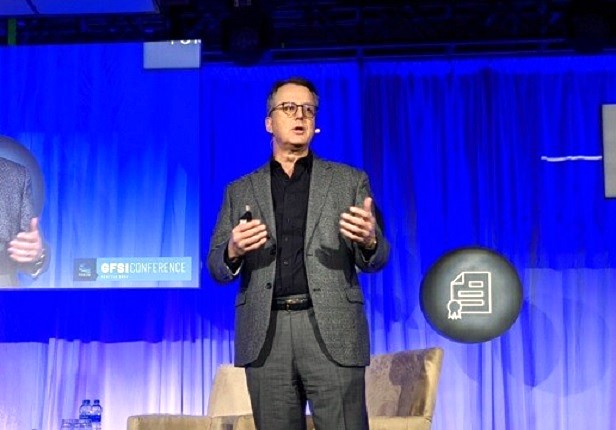Communicating livestock: "Science is essential but won't be sufficient."

At the “International Summit on the Role of Meat & Livestock in Society” held in Denver (USA) on October 30th and 31st, 2024, the European Livestock Voice took the opportunity to interview the first speaker at the summit: Charlie Arnot, Chief Executive Officer of the Center for Food Integrity. In one of the most inspirational presentations of the two-day event, he underlined the importance of communicating science effectively and of shared values to building trust.
Mr Arnot, during your speech, you spoke about evaluating truth and the fact that truth is relative. Can you explain this concept further and how it affects the debate on meat and livestock?
Truth is a social construct. We agree as a society about what we’re going to consider true, and for the last 400 years, we have agreed that we will base truth on science and facts. But 20 years ago, social media came into our lives and fundamentally redefined the entire communication environment. Now it’s much more about what feels true to meor what someone like me says or believes that influences my perception of truth. So, the role of science has fundamentally shifted and changed. So, it’s really incumbent upon scientific communicators to understand that so they can become more effective in this new environment. The new environment will not change, and we’re not going back to when everybody believed in facts and science. So, how do we make sure science is relevant in this moment?
Speaking of social media, you said we went from mass communication to masses of communicators…
Yes, we had mass communication for years. We had maybe a handful of television networks in every country one or two major newspapers in every city, and we relied on them to tell us what was true. The media don’t tell us what to think, but they tell us what to think about, right? Because they keep it in front of us. Well, once we lost that and transitioned to social media, everybody with a cell phone is now a content creator. Everybody can have an opinion, and we have podcasters like Joe Rogan in the United States with a larger audience than several major networks combined. So, it’s a brand-new environment that’s really democratised the spread of information and power, but it’s also reduced the impact of science in those social conversations.
As you said during your presentation, science is essential but won’t be sufficient…
Yeah, that’s the key. We of course don’t have to abandon science, but when it comes to communication, we must go easily with it, like using salt while cooking. Sometimes, this is very difficult for technical or scientific audiences to hear because they’re accustomed to science being the sole judge of what’s going to be true. But this is not the case anymore.
How can we face such a situation?
We would all like a silver bullet. We would all like the easy button. We all like a quick fix. It doesn’t exist. So, it requires a mindset shift first for scientists to understand ‘I need to change how I think about science. I need to change how I think about engaging to impact these discussions positively.’ The discussions are crucial. If we’re going to make improvements in diet, if we’re going to make improvements in health, and if we’re going to make improvements in the environment, they need to be science-based. But science in and of itself will not be sufficient because not everybody has the same grounding, understanding, and trust in science. So, how do we make scientific messengers more trusted? By helping them communicate values, understand the new communication environment, and sustain that over time. It’s going to be frustrating, not going to be efficient, and not going to be easy, but if we want to have an impact, we’ve got to make sure we’re committed to that and doing it for an extended period of time.
How can we bring the topics, concepts, and information such as the Dublin Declaration and the Denver Call for Action to the general public? What we need to be able to do is, again, to change our mindset and understand that scientists must communicate in a very different way. They’ll have to engage more frequently. We think it is a communication function, but no, it is a sector function. The entire industry has to embrace this approach to say we will communicate based on values. We will introduce science when permitted and sustain that approach for decades because this is a generational challenge. It will not happen quickly, so it is important to understand science’s role. We need things to be science-based, but that, in and of itself, will not win the day.